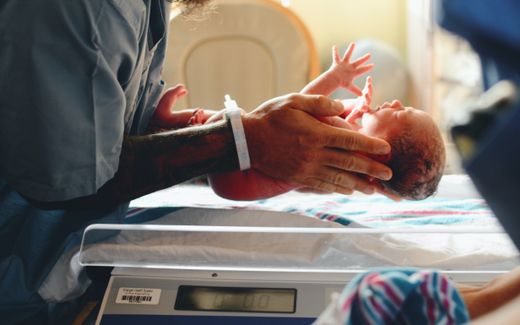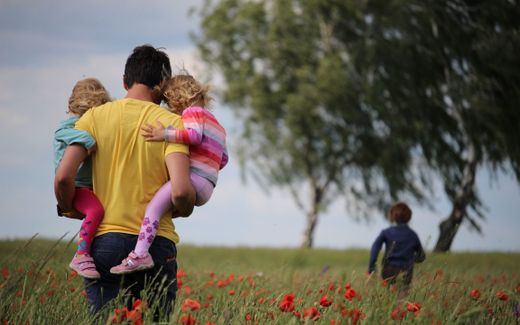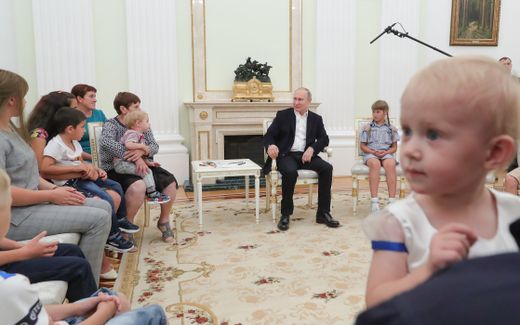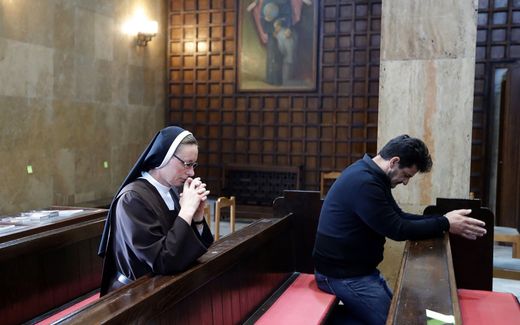Weekly column from Poland: No children, no baptisms
11-11-2022
Christian Life
Sashko Nezamutdinov, CNE.news
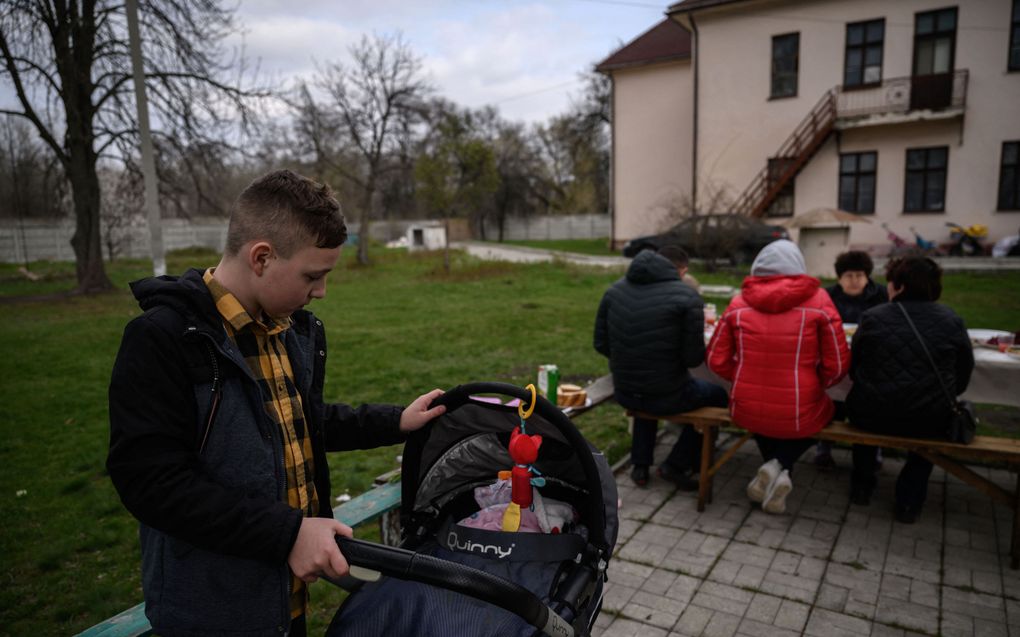
Photo AFP, Ed Jones
Christian Life
“I can't afford it.” "I'm afraid of the climate crisis and poverty, and the future is uncertain." "Who said we should all have children?" These are just a few of the statements from Poles in their thirties who do not have children.
It is quite new that young Poles do not want to have children.
The Central Statistical Office (CSO) expect 331,511 children will be in 2022. The number of births last year fell the sharpest since the Second World War. A year earlier (in 2020), the number of births in Poland was 355,309.
The fertility rate is affected by many factors – from economic to psychological.

More and more young people are giving up the idea of starting a family quickly; they want to get to know themselves and the world first, to acquire some material goods. Peoples’ awareness has changed, the perception of the emphasis on fulfilling social expectations has changed. More individualistic trends have emerged. More people are guided by their own beliefs when making decisions, even disregarding the views of their family. Young people start to listen to themselves rather than to what other people say or the general social protocol.
Career
This is generally the pattern among young people: you study, stabilise in the job market and only later think about having children. For them, studying is a tool to improve their position on the labour market. Career may be a factor that influences the decision to postpone motherhood.
Young people are inspired by mass culture, films and the internet. The current trend there is more towards an affirmation of being single, hedonism, consumerism and a life without commitments. The family is mainly discussed at school, but in a form that sometimes does not reach students.
From the eyes of young people, the world is moving in a strange direction; they have doubts about whether this is a good time to start a family. At times, when something important happens, anxiety arises. That can contribute to more procreation or lead to another change in family planning. For example, this is said to have been the case during martial law in Poland in 1981 – some people were afraid, others were looking for intimacy. As the specialist adds, a similar phenomenon was noticeable during the lockdowns in Poland. Similar trends are being noticed in Ukraine now.
There is also a shortage of day cares in Poland. Poor access to childcare institutions also discourages people to have a child - because what to do when parental leave ends and you have to go back to work? Not everyone lives next door to parents or grandparents who can help. And half of all Poles earn less than a 1,000 Euro a month. This is not an income that allows you to hire a nanny.
Control
A female politician said that she would very much not like the Polish government to promote a conservative, Catholic model of the family and the world. In her opinion, such actions would be another tool to control the lives of Polish women and men; "to step into their lives with shoes” – which is a Polish proverb that means to interfere in someone's life.
All of this is a rebellion of young Poles against the past, where the Catholic Church had a say about everything and everyone. And the baby is thrown out with the bathwater. Many good things now are being “cancelled” simply because they are something that the Catholic Church would encourage.

Parents that do decide to have children, according to some left-wing newspapers and news services, have an "increasing religious awareness". Baptism, for instance, is no longer a choice or a rite accepted without thought. Parents are aware of the consequences of accepting the sacrament and the expectations of the Catholic Church after it, and many of them do not want to make such an important decision on behalf of their child. They prefer to wait until the child grows up and chooses the religion closest to their beliefs on their own.
Grandmother
Despite “greater awareness”, parents often forget that receiving the sacrament of baptism is a commitment to the Christian community and to God. Some parents baptise their children only because “it's the right thing to do” or “just in case". Increasingly, the initiator of infant baptism in the family is the grandmother. In order to avoid conflict with the senior of the family and to respect her health and often her sick heart, the parents, non-practising Catholics, eventually give up and decide to baptise their child.
Concerning this avoidance of baptism, a popular ironic comment is coming to my mind: Would you argue the same when it comes to language? Imagine you would not speak to your child at all, lest you impose your language on the baby. Let it grow and choose the language he or she will choose… -;)
Individualism, consumerism, materialism, secularism and many other -isms, along with the ever-growing rebellion against the Catholic Church, have led Poland to the same position Western Europe got to not that long ago. We watched these processes in the West, and we get to watch them once again in the heart of Europe… Sadly…
Related Articles

